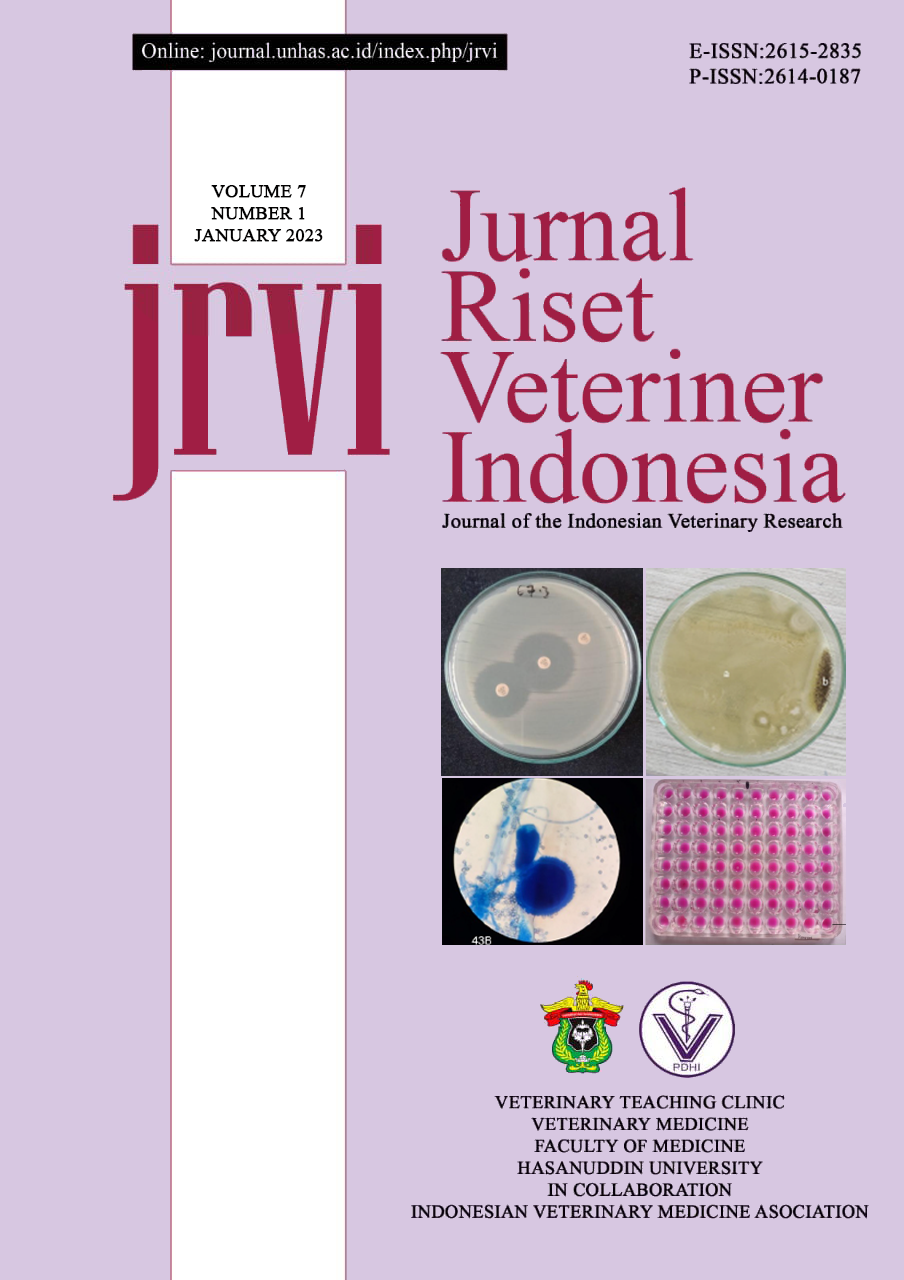Abstract
Fractures are commonly find in the world of veterinary practitioners. Fractures do not only occur as a result of accidents, but can also occur due to bone diseases or due to an imbalance nutrition in animals. One method that can be used to increase the healing process is through bone implantation. Bone graft is a material to speed up the bone healing process because it can provide mechanical support and signals to the body's molecules to maximize tissue growth. Bone implants that are often used and commonly found are bovine bone implants. Another implant material that we can use is horse bone. Bone grafts from horse bones have not been widely studied. Horse bone has the potential to be used as bone graft material because it has a more compact and harder structure. The aim of this study was to asseess the haematological profile of fracture rabbit with horse bone graft. The experimental animal used was a rabbit. A total of 12 rabbits were divided into three groups, namely the control group, the group with horse bone graft, and the group with commercial bone graft. Horse bone graft is obtained from horse bone waste through sintering and hydroxyapatite synthesis processes. Blood collection was performed pre-surgery, week 2 and week 6 postoperatively to see the response and description of blood cells against bone graft. The results of hemoglobin and erythrocyte examinations showed no significant difference between the three groups (P<0.05). Hemoglobin level in rabbits implanted with horse bone grafts was still at normal levels, except for the erythrocyte levels which were slightly below normal after surgery.

This work is licensed under a Creative Commons Attribution-NonCommercial 4.0 International License.

